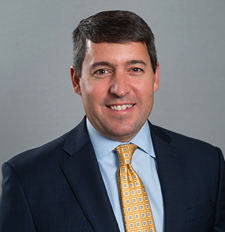

Plastic Pollution Expert in Fourth Grade
Source/Author: Olivia J. '27
October 04, 2018
Fourth graders spoke with Stewart Harris, the Director of Marine and Environmental Stewardship, Plastics Division at American Chemistry Council in Washington DC. His topic of how to remediate and prevent plastic pollution in our oceans aligned with their year-long study of trash and sustainability. Below are notes from fourth grader Olivia J. about what they learned.
"Fourth grade has been studying sustainability. On September 27, Stewart Harris, a scientist in Washington D.C., connected with the fourth grade classes in a Google Hangout session. Mr. Harris is trying to figure out ways to prevent plastic from getting into the ocean. We learned a lot of disturbing facts, for example, most plastic in our oceans is from Asia. Only ten percent of the people there have trash deliveries. The rest dump the garbage on vacant land and it eventually reaches the ocean. In the ocean, the plastic turns to microplastics (plastic that breaks down into tiny pieces and pollutes the ocean). Twenty percent of the plastic in our oceans comes from fishing boats. About eight million tons of microplastics a year make it to the ocean. That is a garbage truck full of plastic dumped into the ocean every minute. Eight hundred species of animals have been affected by plastic pollution in the ocean. Animals are impacted by getting caught in old fishing equipment and by eating plastic.
Mr. Harris also talked about what is being done to solve the problems. One invention is called Mr. Trash Wheel. It is in the harbour in Baltimore and scoops up trash so it doesn't reach the ocean. There is also an invention being launched into the Pacific Ocean that will haul garbage back to land. The best way to prevent plastic from getting into our oceans is really to use less of it. Be sure plastics you do use are secured in recycle bins. Mr. Harris believes we can solve the plastic problem in the next five to ten years!"
As the next phase of the fourth grade sustainability study, classes will visit Edgemoor Community Garden where Farmer Ray will teach us about reducing food waste by making compost. "Farmer Ray" is Ray Wunderlich, a former Shorecrest student and perennial consultant on campus regarding all things gardening.
























